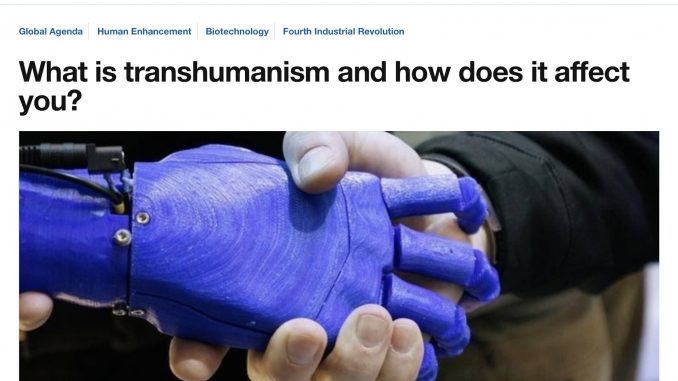
Since the beginning of the global pandemic, the World Economic Forum has taken on a new life, appearing as the non-governmental group that will solve all of the world's problems. In this posting, I want to explore how the WEF is funded and its key partners who provide the funding necessary to keep Klaus Schwab's vision for the world alive.
Let's start by looking at some background about the World Economic Forum and its goals to help us put the importance of its funding partners into context. This organization, founded in 1971 by Klaus Schwab (then known as the much less grand European Management Forum), seeks to create a new global economic reality known as the Great Reset, a merging of corporate and government bodies to create stakeholder capitalism which the WEF claims will benefit the global population. Here is what the WEF has to say about stakeholder capitalism as written by the group's founder and Executive Chairman in January 2021:
Here is a quote from Schwab's musings:
"The stakeholder concept goes a long way back: more than 50 years. I first wrote about it in 1971, when I was a young business academic. But its roots go even further. In the 1950s and 1960s, it was quite natural for a company and its CEO to consider not just shareholders, but everyone who as a “stake” in the success of a firm.
That is the core of stakeholder capitalism: it is a form of capitalism in which companies do not only optimize short-term profits for shareholders, but seek long term value creation, by taking into account the needs of all their stakeholders, and society at large."
According to Schwab, the biggest challenges in the world can be best met through "private-public cooperation".
Here are the key stakeholders in Schwab's vision:
1.) governments of countries, states, and local communities
2.) civil society from unions to NGOs, from schools and universities to action groups
3.) companies constituting the private sector, whether freelancers or large multinational companies)
4.) the international community consisting of international organizations such as the UN as well as regional organizations such as the European Union or ASEAN (and we might add the World Economic Forum, of course)
Here is Schwab's global stakeholder model:
You will notice that companies form a key part of Schwab's vision of a global stakeholder model.
Keeping the importance of companies to the "new global reality" (aka the Great Reset) in mind, we need to know who are the stakeholders in the World Economic Forum since the organization exists for the global elite (i.e. you and I are most definitely not welcome to attend their Davos meetings). While it is little-discussed, one might ask who is funding the World Economic Forum? The WEF is an International Institute under Swiss law, a not-for-profit, politically neutral organization. Here is a webpage from the WEF's website answering "Who pays for Davos?":
Note that funding is sourced from membership fees paid by the world's most significant corporations who join the Forum as members and partners. There are different levels of memberships and partners as shown here:
…with fees varying from CHF60,000 to CHF600,000 (1 Swiss franc (CHF) = $1.11 US) depending on the level of participation by the partner/member. Included with most memberships/partnerships is the opportunity to participate int he WEF's annual meeting in Davos for the CEO of the company, however, additional fees over the cost of membership or partnership fees are incurred.
It is also noted on the funding page that the forum works with government agencies and in certain cases, these government agencies provide funding to the WEF.
From the WEF's 2019-2020 Annual Report, we find the following balance sheet (all figures are denominated in thousands of Swiss francs (CHF)):
Total revenues of CHF367.004 million in fiscal 2019 – 2020 is up CHF161.246 million Swiss francs or 78.37 percent over the five year period from fiscal 2014 – 2015. By far, the largest growth in revenue came from partnership revenue which grew from CHF114.896 million in 2014 – 2015 to CHF262.278 million in 2019 – 2020, an increase of 128.3 percent. The WEF is also has substantial assets of CHF596.385 million with CHF107.338 million in cash and equivalents.
Since the World Economic Forum is mainly funded through fees charged to its partners. let's take a look at a few of the key members:
1.) Big Pharma/Medical:
Abbot Laboratories, AstraZeneca, Bayer, Johnson & Johnson, Mayo Clinic, Merck, Moderna, Novartis, Roche, Sanofi, Sun Pharmaceutical Industry, Takeda Pharmaceutical, Teladoc Health, Thermo Fisher Scientific,
2.) Resource:
Anglo American, Baker Hughes, bp, Chevron, Hess Corporation, Hunt Consolidated Energy, Occidental, Royal Dutch Shell, Saudi Aramco, Schlumberger, Sinochem Group, Teck Resources
3.) Big Tech:
Adobe Systems, Alibaba Group, Amazon Web Services, Apple, Dell Technologies, Ericsson, Facebook, Google, Fujitsu, Hewlett Packard Enterprise, Hitachi, Honeywell, Huawei Technologies, IBM, Infosys, Intel, Ipsos, LinkedIn, Microsoft, Mozilla, NEC, Nokia, PayPal, Qualcomm, Siemens, Sony, Tencent Holdings, Verizon Communications, Zoom, Zurich Insurance Group
4.) Finance and Insurance:
AIG, Allianze, Allied Bank, Bank of America, Barclays, BMO Financial Group, Brookfield Asset Management, Citi, Caisse de depot de placement du Quebec, CPP Investments, Deutsche Bank, Equifax, European Investment Bank, Goldman Sachs, HSBC, ING Group, JPMorgan Chase & Co, Kaiser Permanente, Manulife, Mastercard, Morgan Stanley, Nasdaq, NCB Universal, Nikkei, NYSE, OMERS, Ontario Teachers' Pension Plan, Prudential, Qatar Development Bank, Qatar National Bank, Royal Bank of Canada, Sberbank, Standard Bank Group, Standard Chartered Bank, State Bank of India, SWIFT, UBS, UPS, Visa, VTB Bank,
5.) Defence:
BAE Systems, Boeing, Lockheed Martin
6.) Foundations:
Bill & Melinda Gates Foundation, Open Society Foundations, Swarovski Foundation
7.) Food/Agricultural:
Cargill, Nestle, Pepsico, The Coca-Cola Company, Tyson Foods, Wellcome Trust
8.) Other:
Airbus, Dow, Fluor, Honda Motor, Hyundai Motors, McKinsey & Company, Mitsubishi Corporation, Proctologist's & Gamble, Ralph Lauren, SNC-Lavalin, Stanley Black & Decker, TIME, Toyota Motor Corporation, The LEGO Brand Group, Unilever, Volkswagen Group, Volvo Group, Walmart, Western Union, YMCA of the US
This is far from a complete listing of "who's who" among the World Economic Forum's partners. If you are interested in the entire listing, please click here for a searchable list.
It is an interesting exercise to see who is providing the financial backing for one of the world's most powerful non-governmental organizations. One has to wonder if the leaders of these companies aren't expecting to get special favours from the World Economic Forum as the Great Reset is implemented, particularly those in the finance/insurance and technology sectors given Schwab's penchant for digital currencies as quoted here:
“Digital currency, a cross-cutting topic that requires input across sectors, functions, and geographies, is a key area of interest for the Forum,” said Klaus Schwab, Founder and Executive Chairman of the World Economic Forum. “Building on our long history of public-private cooperation, we hope that hosting this consortium will catalyse the conversations necessary to inform a robust framework of governance for global digital currencies.”
….and his obsession with all things technological as he promotes his transhumanistic vision as shown here:
After all, it is a rule of thumb that companies do whatever they can to maximize profits, sweaty masses/useless eaters be damned, no matter how Klaus Schwab and the World Economic Forum try to convince us otherwise.
You can publish this article on your website as long as you provide a link back to this page.

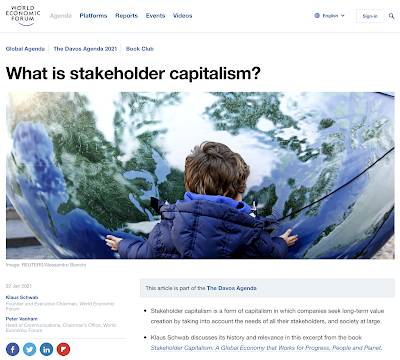
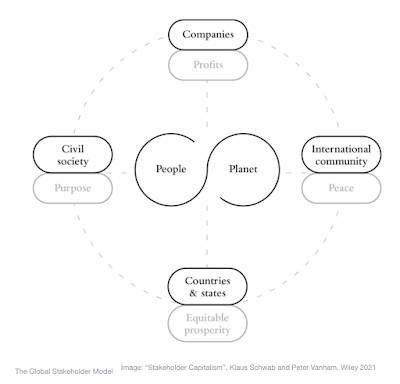
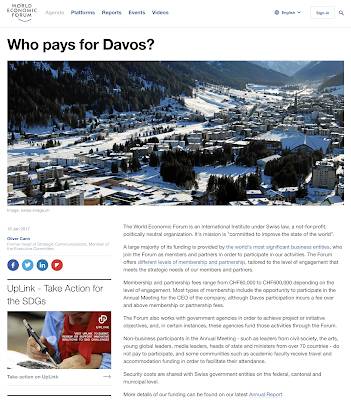
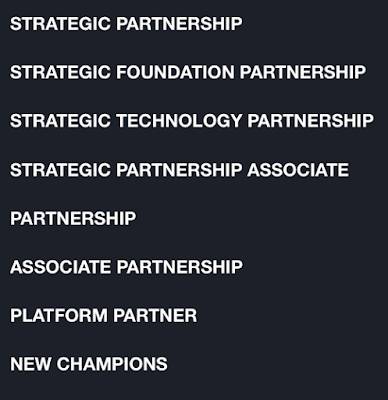
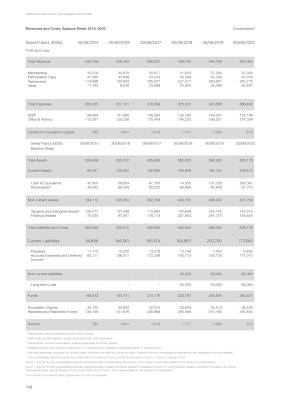
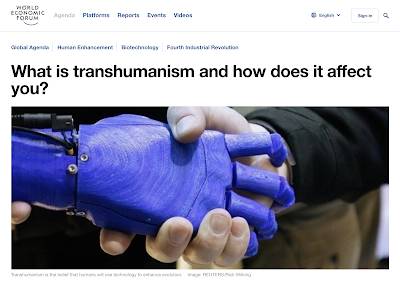
hi, i want to congratulate you for the excellent journalism. I also want to say I cannot access the list of the key partners of the World Economic Forum. Is it a book on Amazon? Could you please show me the name of the if so? Thanks :))